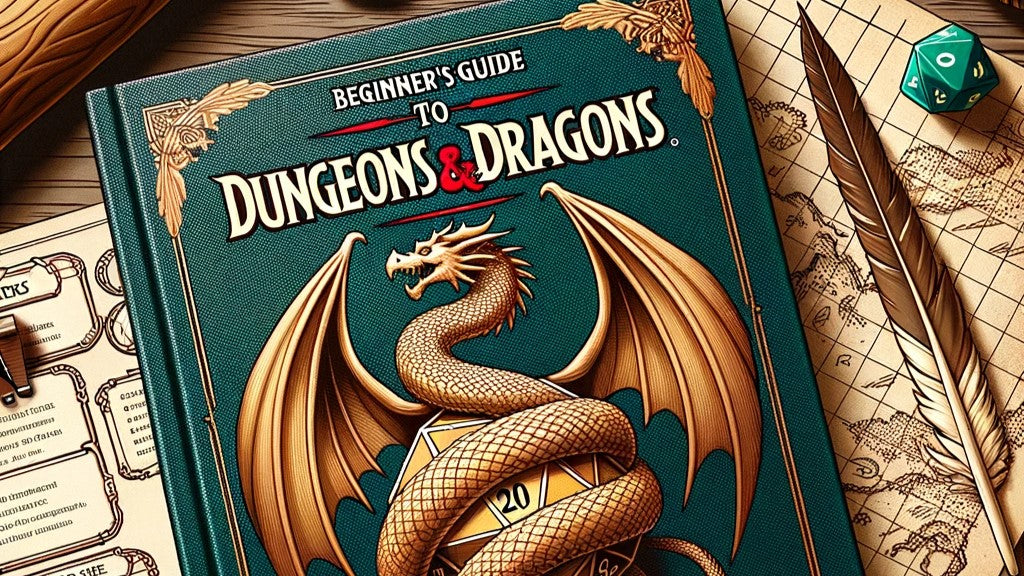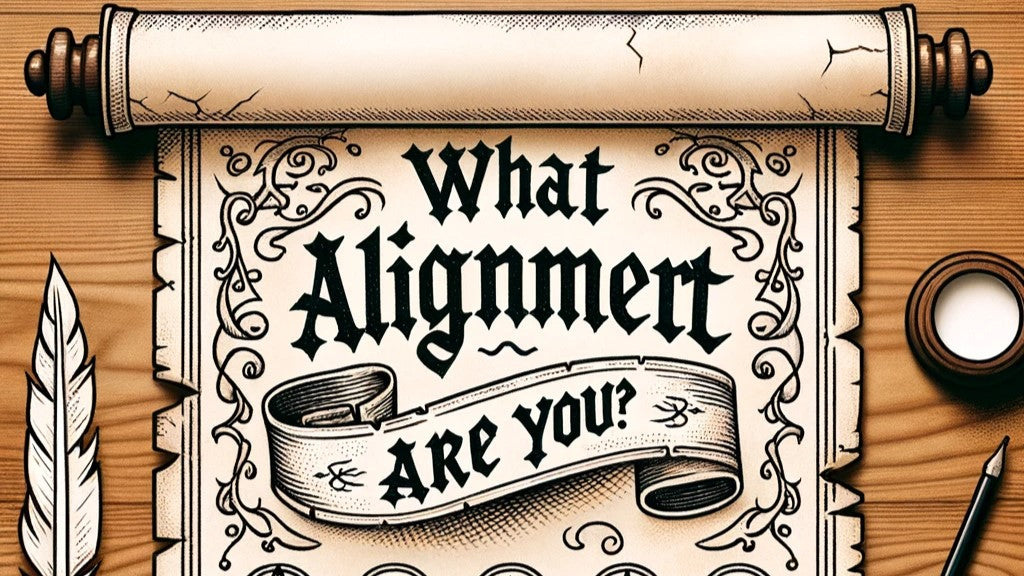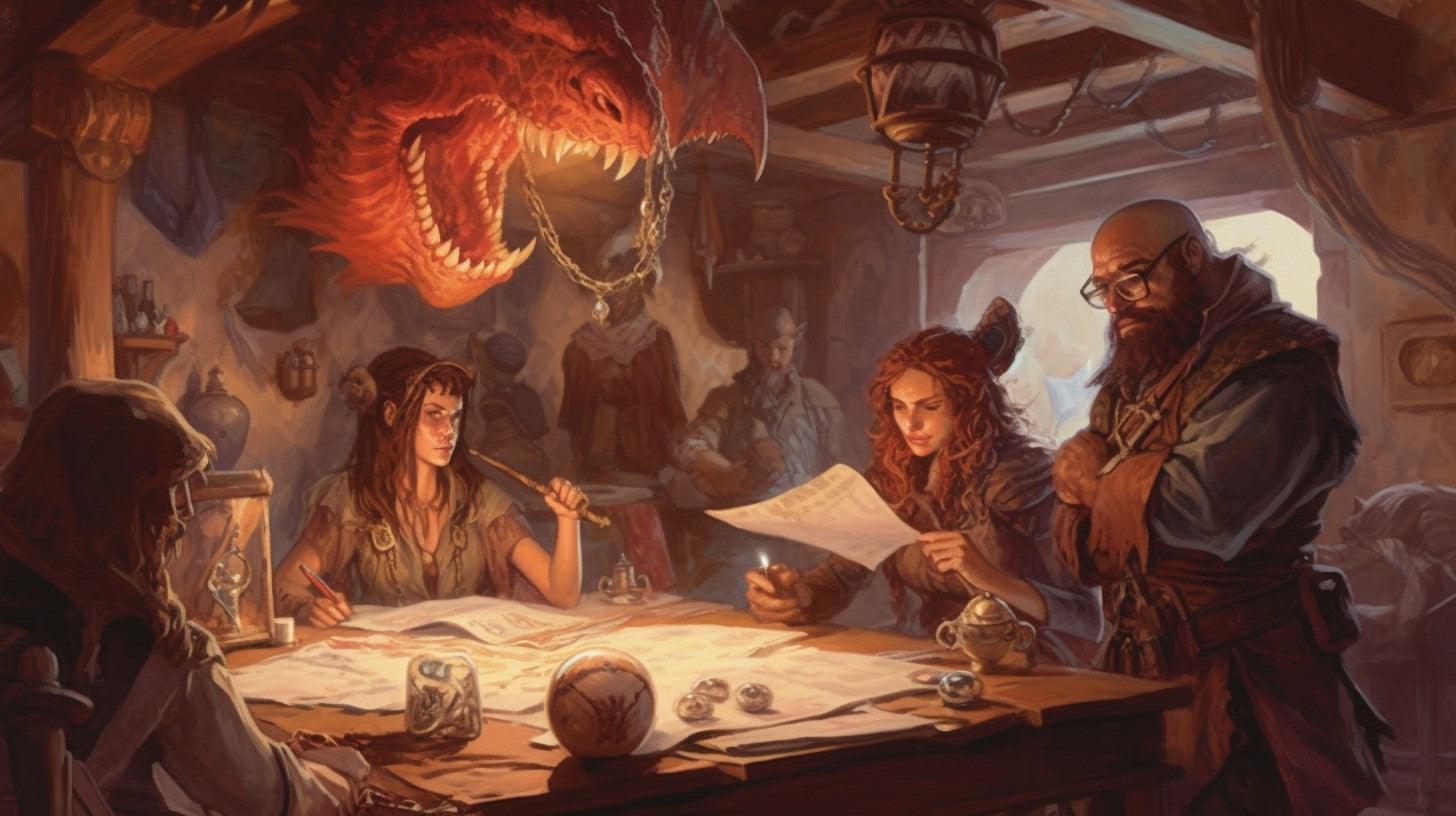Welcome, brave adventurer, to the world of Dungeons & Dragons (D&D)! This tabletop role-playing game (TTRPG) has captured the imaginations of millions since its inception in 1974. If you're new to the game and eager to dive into a realm of fantasy and adventure, you've come to the right place. Our comprehensive beginner's guide will help you learn the ropes and become a master adventurer in no time. So grab your dice, gather your friends, and let's begin our journey into the world of D&D.
What is Dungeons & Dragons?
Dungeons & Dragons is a collaborative storytelling game where players create their characters and embark on epic adventures in a fantasy world filled with magic, monsters, and treasure. A Dungeon Master (DM) guides the story, controlling non-player characters (NPCs), describing environments, and setting challenges for the players to overcome. The game's rules, which have evolved through several editions, provide a framework for resolving actions and interactions in this imaginary world.
Essential Components
To start playing D&D, you'll need a few essential components (we've added links so you can more easily find what you may need):
-
Player's Handbook (PHB): The PHB contains all the rules for creating characters, using spells, and resolving in-game actions. It's an indispensable resource for players.
-
Dungeon Master's Guide (DMG): This book provides guidance for DMs on running the game, creating adventures, and managing a campaign.
-
Monster Manual (MM): The MM is a compendium of creatures and adversaries that players may encounter in their adventures.
-
Dice: D&D uses various polyhedral dice, but the most important is the 20-sided die (d20). You'll also need d4, d6, d8, d10, d12, and d100 (percentile) dice.
-
Character Sheets: A character sheet is where you record your character's abilities, skills, equipment, and other details. You can use our custom ones or you can use the free one provided by D&D here.
-
Pencils and Erasers: You'll need these to make notes and update your character sheet as you progress through the game.
-
A Group of Friends: D&D is best enjoyed with a group of friends. Aim for a party of 3-6 players, plus a Dungeon Master.
Creating Your Character
Creating your character is one of the most exciting parts of playing D&D. Follow these steps to bring your hero to life:
-
Choose a Race: Your character's race determines their appearance, abilities, and cultural background. Some common races include humans, elves, dwarves, and halflings.
-
Choose a Class: Your character's class defines their role in the party and the abilities they possess. Examples include fighters, wizards, rogues, and clerics.
-
Determine Ability Scores: Your character has six ability scores (Strength, Dexterity, Constitution, Intelligence, Wisdom, and Charisma) that influence their skills and abilities. Use the "Standard Array" (15, 14, 13, 12, 10, 8) or the "Point Buy" system to allocate your scores.
-
Choose Background, Skills, and Feats: Your character's background provides additional skills, languages, and equipment. Select a few skills and, if applicable, a feat (a special ability that enhances your character).
-
Select Equipment: Use the starting equipment provided by your class and background or purchase items using the starting gold determined by your class.
-
Calculate Hit Points: Your character's hit points (HP) represent their health and resilience. Calculate your starting HP using your class's hit die and your Constitution modifier.
-
Determine Saving Throws, Attack Bonuses, and Armor Class: Saving throws represent your character's ability to resist certain effects, while attack bonuses determine their prowess in combat. Calculate these values based on your ability scores and class features. Armor Class (AC) represents how difficult it is for enemies to hit your character and depends on your armor, shield, and Dexterity modifier.
- Choose Spells (if applicable): If your character is a spellcaster, select a number of spells from your class's spell list according to your class's rules.
- Develop a Backstory and Personality: Give your character depth by creating a backstory, personality traits, ideals, bonds, and flaws. These elements help you roleplay and bring your character to life in the game.
Playing the Game
D&D is played in sessions, typically lasting a few hours. Each session is composed of three main elements: exploration, social interaction, and combat. The DM describes the environment, sets challenges, and presents opportunities for players to interact with the world and its inhabitants. Players take turns describing their characters' actions and making decisions that shape the story.
During the game, you'll use the d20 to resolve actions, such as attacking monsters, casting spells, or persuading NPCs. To determine success or failure, you'll roll the d20, add relevant modifiers (e.g., ability scores, skill bonuses), and compare the result to a target number, usually called the Difficulty Class (DC).
Combat
Combat in D&D is turn-based and follows a specific sequence:
-
Initiative: At the beginning of combat, each participant rolls a d20 and adds their Dexterity modifier to determine the order of turns, called initiative.
-
Actions: On your turn, you can take one action, such as attacking, casting a spell, or using an item. You can also move up to your character's speed.
-
Bonus Actions: Some abilities or spells grant bonus actions, which can be used in addition to your main action.
-
Reactions: Reactions are special actions that can be taken outside of your turn in response to specific triggers, such as an opportunity attack when an enemy leaves your reach.
-
Conditions: Certain effects, such as being stunned or grappled, impose conditions that limit your character's abilities during combat.
Levelling Up
As your character gains experience points (XP) from completing quests and defeating enemies, they'll level up, gaining new abilities and improving existing ones. Each class has a unique progression detailed in the Player's Handbook. When you level up, you'll increase your hit points, gain access to new spells or class features, and potentially unlock new abilities called feats.
Tips for New Players
-
Communication is key: Discuss your plans with your fellow players and the DM, both in and out of character.
-
Embrace your character's personality: Roleplaying your character's traits, bonds, and flaws can lead to memorable moments and enhance the overall experience.
-
Be a team player: D&D is a collaborative game; help and support your fellow adventurers to overcome challenges.
-
Learn from your mistakes: If things don't go as planned, analyze the situation, and apply the lessons learned to future encounters.
-
Be creative: D&D is a game of imagination; think outside the box and propose unconventional solutions to problems.
-
Have fun: Most importantly, enjoy the journey, the camaraderie, and the shared stories you'll create with your friends.
Conclusion:
With this beginner's guide in hand, you're now equipped to embark on your first Dungeons & Dragons adventure. Remember, the game is all about creating memorable stories with your friends, so don't be afraid to let your imagination run wild. Embrace the spirit of collaboration, immerse yourself in the role of your character, and most importantly, have fun. The world of D&D is vast and filled with endless possibilities, so gather your party, step into the realm of fantasy, and forge your own epic tale. Happy adventuring!



